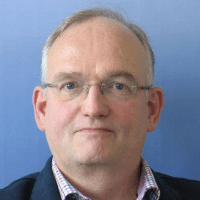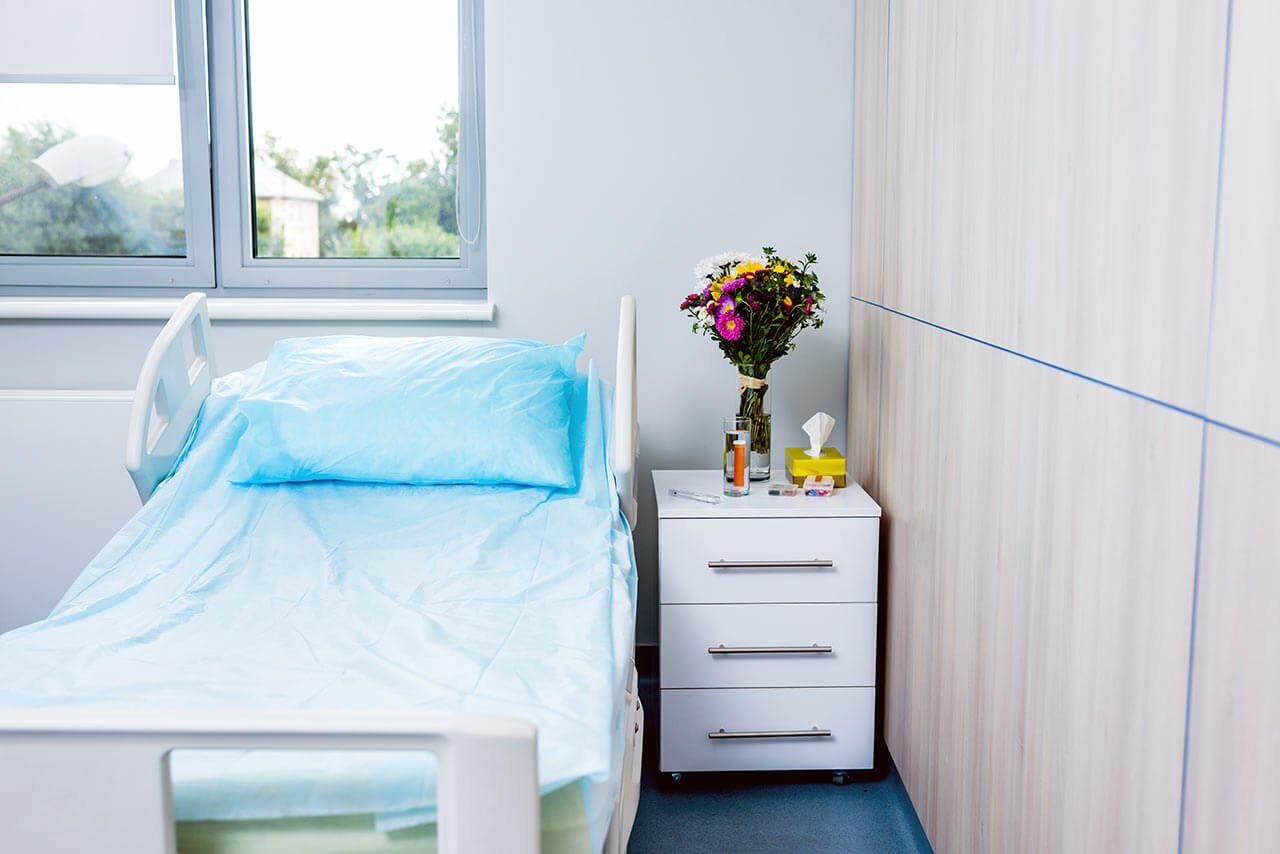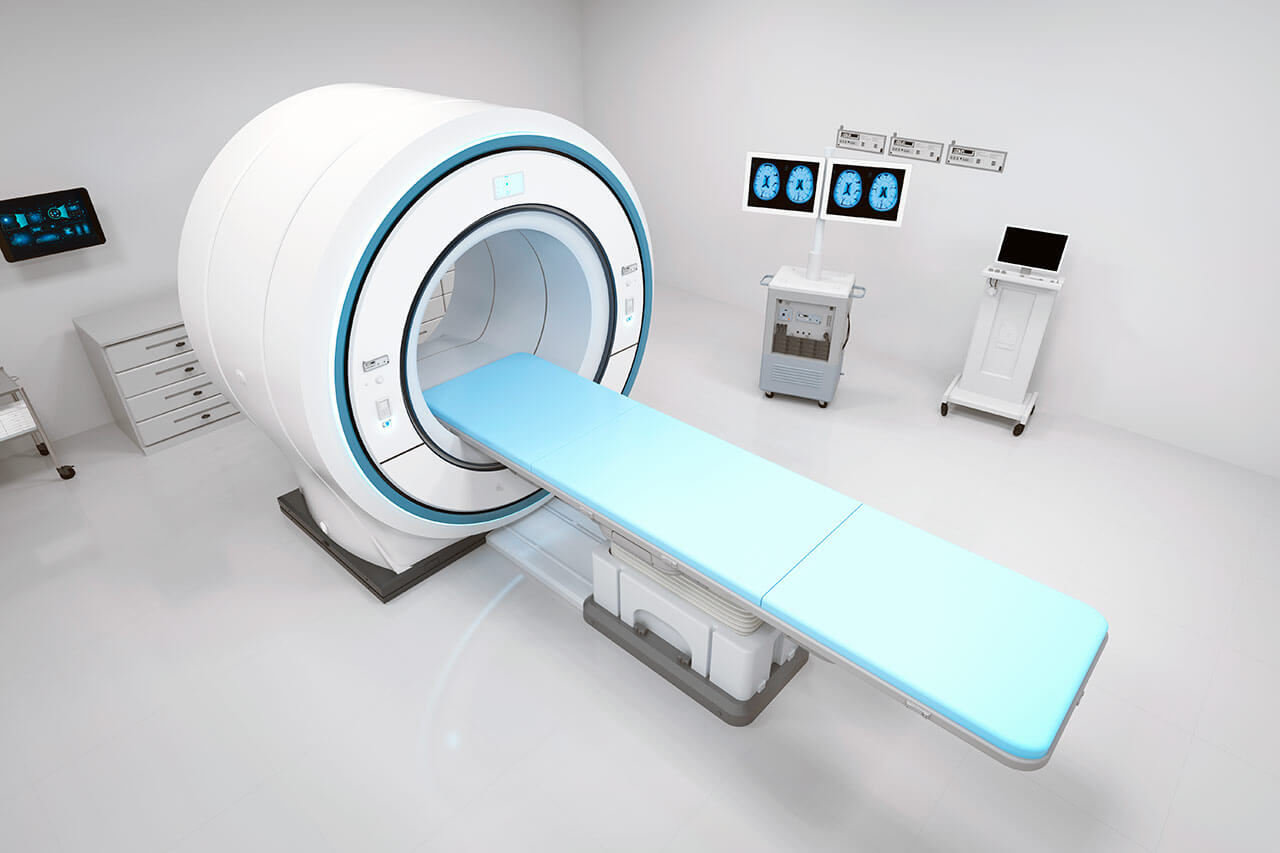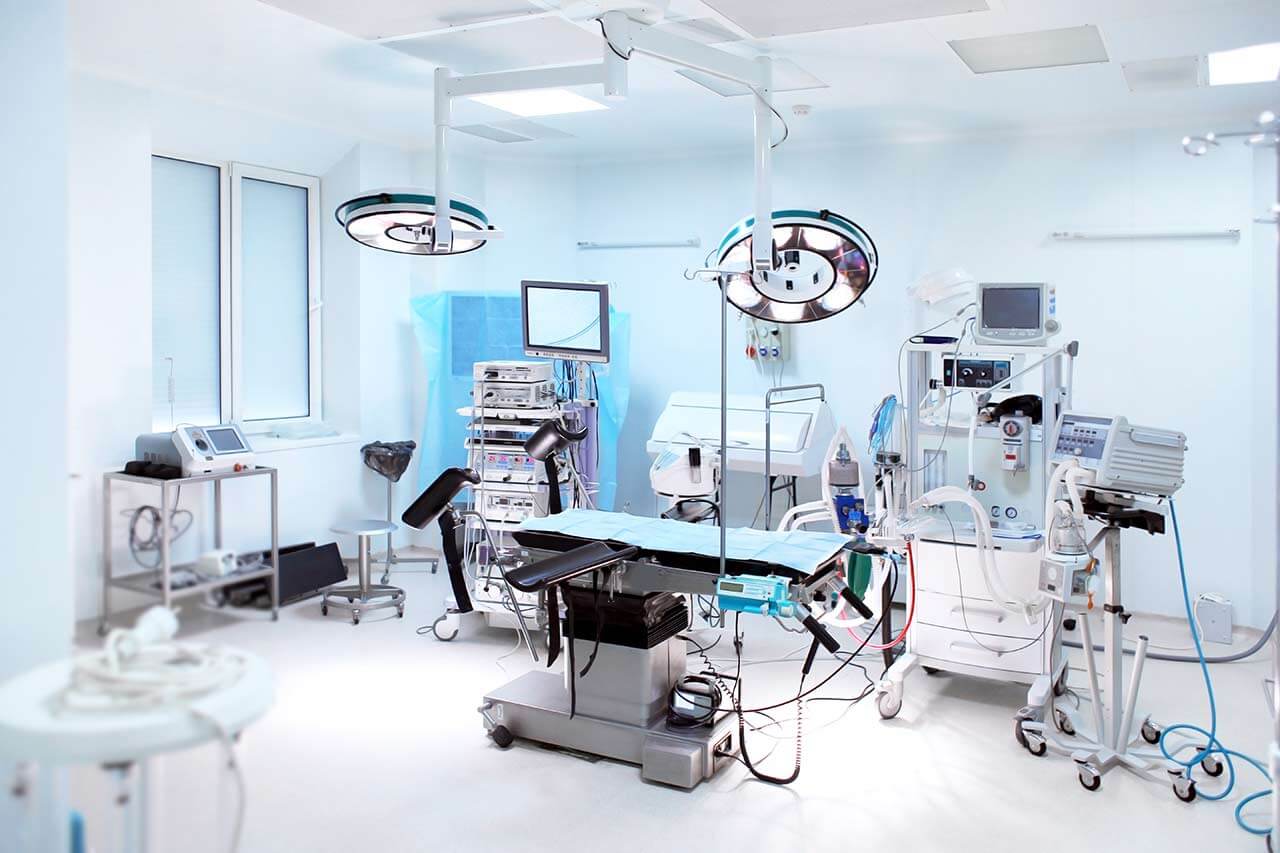
The program includes:
- Initial presentation in the clinic
- clinical history taking
- review of medical records
- physical examination
- laboratory tests:
- complete blood count
- general urine analysis
- biochemical analysis of blood
- TSH-basal, fT3, fT4
- tumor markers
- inflammation indicators
- indicators of blood coagulation
- orbital ultrasound scan
- CT / MRI / X-ray scan of the head and orbit
- 1 course of chemotherapy
- nursing services
- consultations of related specialists
- explanation of individual treatment plan
How program is carried out
During the first visit, the doctor will conduct a clinical examination and go through the results of previous laboratory tests and instrumental examinations. After that, you will undergo an additional examination, including laboratory assessment of liver and kidney function, ultrasound scan. Based on the received results, the doctor will elaborate the chemotherapy regimen. If necessary, related medical specialists will be involved in the elaboration of a treatment regimen (tumor board).
Chemotherapy is carried out as the day hospital procedure, without mandatory admission to the hospital. After the placement of a venous catheter, you will stay in a comfortable ward. An infusion system will be connected to the catheter, through which the required drug or a drug combination will be administered. All drugs are administered by intravenous drip, slowly, so the total duration of the infusion can be up to several hours. All this time, doctors and nurses will monitor your health condition closely.
After the course of chemotherapy, you will stay under medical supervision in the ward for a few more hours. If your general condition is good, your doctor will allow you to leave the hospital. You will receive the medical report with detailed recommendations regarding further treatment. In the future, you will be able to have a distant consultation with your attending physician and schedule the next course of chemotherapy, if necessary.
Required documents
- Medical records
- MRI/CT scan (not older than 3 months)
- Biopsy results (if available)
Service
You may also book:
 BookingHealth Price from:
BookingHealth Price from:
About the department
The Department of Pediatric Hematology, Oncology and Bone Marrow Transplantation at the University Hospital Giessen UKGM offers the full range of modern diagnostics and effective treatment for children and adolescents with malignant diseases of the blood and lymphatic system (leukemias and lymphomas), brain tumors and solid tumors, as well as benign hematopoietic disorders. The department has at its disposal a large arsenal of therapeutic methods for cancer treatment. These include chemotherapy, radiation therapy, stem cell transplantation and psychosocial care. In addition, the department has a special competence in the treatment of immunodeficiency disorders and rare types of anemia. When treating young patients, the department's doctors observe the standardized protocols of the Society of Pediatric Oncology and Hematology, which guarantees the most favorable treatment outcome. The department is headed by Prof. Dr. med. Dieter Körholz.
One of the key focuses of the department's work is the treatment of leukemia and lymphomas, which are among the most common malignancies in children and adolescents. The department's specialists have vast clinical experience in this field and provide effective treatment even in the most complex cases. The basis of treatment is chemotherapy. However, cancer is often detected at an advanced stage, and therefore young patients in a high risk group require bone marrow transplantation. In addition, in some cases, bone marrow transplantation is the only effective treatment option for the patients diagnosed with leukemia or lymphoma. The procedure is carried out by a specially trained team of highly qualified experts. The material for autologous blood stem cell transplantation is harvested in close cooperation with the Center for Transfusion Medicine and Hemotherapy, where the cells are processed and cryopreserved. The children with certain types of solid tumors and relapsed lymphoma are indicated high-dose chemotherapy followed by autologous stem cell transplantation. Allogeneic blood stem cell transplantation from family members or an unrelated donor is indicated for the children with high-risk leukemia, relapsed leukemia and lymphoma, as well as bone marrow failure. The department's transplantation team takes care of finding a donor, preoperative preparation, the transplantation itself and follow-up care. The transplantation is performed in accordance with the requirements of professional societies, which ensures maximum safety and efficiency of the procedure.
The department's specialists are also distinguished by their exceptional competence in the treatment of brain tumors and solid tumors of other organs. In most cases, the treatment regimen for these patients includes three main therapeutic methods — chemotherapy, tumor resection surgery and radiation therapy. Chemotherapy and radiation therapy can be conducted both before and after surgery. The optimal treatment regimen is determined according to the particular clinical indications of the child, the type of tumor, the stage and localization of the oncological process. The surgical interventions to resect malignant tumors are performed in cooperation with narrowly-focused specialists. For example, if the child is diagnosed with a brain tumor, neurosurgeons are necessarily involved in the therapeutic process. The department carries out many clinical trials to test innovative drugs and therapeutic methods, and therefore the young patients with especially severe clinical cases have the opportunity to take part in these trials.
The department's range of medical services includes:
- Diagnostics and treatment of leukemias
- Acute lymphoblastic leukemia
- Acute myeloid leukemia
- Chronic myeloid leukemia
- Myelodysplastic syndrome
- Diagnostics and treatment of lymphomas
- Hodgkin's disease
- Non-Hodgkin's lymphoma
- Diagnostics and treatment of embryonal tumors
- Diagnostics and treatment of sarcomas
- Diagnostics and treatment of tumors of the central nervous system (brain and spinal cord)
- Gliomas
- Medulloblastomas
- Ependymomas
- Craniopharyngiomas
- Vascular plexus tumors
- Rhabdoid tumors
- Diagnostics and treatment of solid tumors
- Neuroblastomas
- Wilms' tumor (nephroblastoma)
- Ewing's sarcoma
- Osteosarcomas
- Soft tissue tumors
- Liver tumors
- Germ cell tumors
- Retinoblastomas
- Diagnostics and treatment of rare tumors
- Pancreatic tumors
- Laryngeal tumors
- Salivary gland tumors
- Diagnostics and treatment of immunodeficiencies
- Diagnostics and treatment of rare types of anemia
- Diagnostics and treatment of congenital and acquired blood-clotting disorders
- Hemophilia
- Von Willebrand disease
- Rare coagulation disorders (for example, factor VII, XI, or XIII deficiency, platelet dysfunction)
- Diagnostics and treatment of other pathologies
The department's main therapeutic options include:
- Bone marrow transplantation
- Autologous bone marrow transplantation (transplantation of the patient's own hematopoietic cells contained in the bone marrow, peripheral or umbilical cord blood)
- Allogeneic bone marrow transplantation (donor bone marrow transplantation)
- Chemotherapy
- Radiation therapy
- Surgical resection of solid tumors in collaboration with pediatric surgeons, neurosurgeons and other specialists
- Palliative care
- Other medical services
Curriculum vitae
- 1984 Admission to medical practice.
- 1992 Board certification in Pediatrics.
- 1994 Position of Senior Physician.
- 1998 Deputy Head of the Department of Pediatric Hematology and Oncology.
- 1999 C3 Professor in Pediatric Hematology and Oncology, University of Leipzig.
- 2006 W3 Professor and Head of the Department of Pediatric and Adolescent Medicine, University Hospital Halle-Wittenberg.
Photo of the doctor: (c) UKGM - Universitätsklinikum Gießen und Marburg GmbH
About hospital
The University Hospital Giessen UKGM positions itself as an ultramodern medical facility with outstanding quality of medical care. The hospital presents almost all areas of medicine, ranging from ophthalmology to traumatology and dentistry. The priorities of the hospital’s activities include surgery, neurosurgery, oncology, nephrology with kidney transplantation and pediatric medicine.
The hospital is the third largest in Germany. Every year, more than 436,000 patients are treated in two locations of the hospital (Giessen and Marburg): 342,000 outpatients and 94,000 inpatients. The medical facility is the first privatized university hospital in the country.
The hospital staff is engaged not only in clinical practice, but also in research activities on the basis of the Faculty of Medicine at Justus Liebig University Giessen and Philipps University of Marburg, which contributes to a significant contribution to the development of modern medicine. During the many years of productive work on the development of new diagnostic and treatment methods, the hospital’s doctors managed to make many significant discoveries.
The hospital enjoys an excellent reputation in Germany and far beyond its borders. It managed to gain such credibility thanks to the high competence of doctors, advanced equipment, high-quality medical service and care.
Photo: (c) depositphotos
Accommodation in hospital
Patients rooms
The patients of the University Hospital Giessen UKGM live in comfortable rooms made in a modern design and light colors. Each room has an ensuite bathroom with shower and toilet. The standard room furnishing includes an automatically adjustable bed, a bedside table, a wardrobe, a table and chairs for receiving visitors, a TV, a telephone.
Meals and Menus
The patients of the hospital are offered balanced, healthy three meals a day: buffet breakfast, lunch and dinner. The private kitchen, certified according to DIN EN ISO 9001:2000, is responsible for providing patients with food and drinks.
If for some reason you do not eat all foods, you will be offered an individual menu. The hospital also has a cafeteria with a large assortment of hot and cold drinks, snacks and desserts.
Further details
Standard rooms include:
Television
All patient rooms are equipped with TV sets. If you have some questions, please contact medical personnel.
Religion
Religious services can be provided upon request.
Accompanying person
During an inpatient program, an accompanying person can stay with you in a patient room or in a hotel of your choice.
Hotel
During the outpatient program, you can stay at the hotel of your choice. Our managers will help you to choose the most suitable option.




